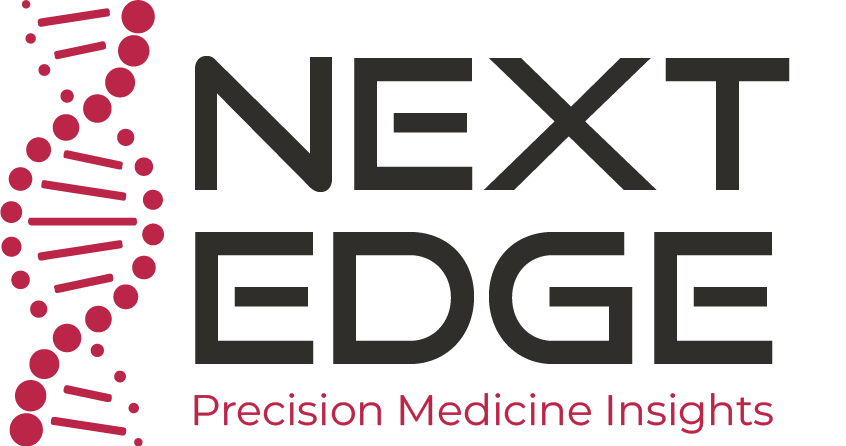April 8, 2022
In Brief This Week: Qiagen, Renalytix, OpGen, PerkinElmer, Avacta, Paige, More

Original source here.
Korea's Ministry of Food and Drug Safety this week approved Qiagen's Therascreen KRAS RGQ PCR Kit as a companion diagnostic test to identify patients with KRAS G12C-mutated non-small cell lung cancer eligible for Amgen's KRAS inhibitor Lumakras (sotorasib). The US Food and Drug Administration previously approved the Therascreen kit as one of two companion diagnostics for Lumakras patient selection last May.
Renalytix said this week that it has completed its previously announced $30.0 million round of financing. It included an $8.8 million equity subscription and a convertible bonds subscription with an aggregate principal amount of $21.2 million and raised aggregate gross proceeds of $26.8 million. The financing consisted of an equity subscription for 2,221,794 ordinary shares and 103,447 American Depositary Shares at a price of $7.25 per ADS or $3.625 per ordinary share.
Net proceeds from the financing will be used for general working capital purposes and to support expected company growth, the firm said. Stifel Nicolaus Europe was the nominated adviser, financial adviser, and placement agent for the financing.
Further, the directors and certain managers of Renalytix have conditionally subscribed for a total of 703,446 new ordinary shares, raising an aggregated total amount of $2.55 million at the reference ADS price pursuant to the equity fund raise.
OpGen said this week that its subsidiary Ares Genetics has expanded a collaboration with Sandoz to develop products to combat antimicrobial resistance to Jan. 31, 2025. The partnership started in early 2019, and during the first stage, Ares developed a digital anti-infectives platform that combines microbiology laboratory practices, advanced bioinformatics, and AI methods to identify antimicrobial compounds. In the next phase, Ares and Sandoz will use Ares' next-generation sequencing and bioinformatics technologies to enable genomic surveillance for resistant pathogens. Financial and other terms of the deal were not disclosed.
PerkinElmer said last week that the California Department of Public Health will end its contract with the company for the supply and operation of the Valencia Branch Laboratory as the number of COVID-19 cases and need for testing have decreased. PerkinElmer will stop operating the laboratory for CDPH on May 15. It reiterated that it continues to expect COVID-19-related revenues of at least $400 million for 2022.
Molecular diagnostics startup Proof Diagnostics said this week that it has submitted its point-of-care, CRISPR-based COVID-19 test to the US Food and Drug Administration for Emergency Use Authorization. The test uses CRISPR technology to detect SARS-CoV-2 nucleic acids. Founded in 2020, Proof Diagnostics licensed StopCOVID technology from the Broad Institute to develop a small, portable device, as well as software and cloud infrastructure. The Cambridge, Massachusetts-based firm has raised $45 million from investors, including Arch Venture Partners, F-Prime Capital, and Madrona Venture Group.
OncoHost said this week that the Roswell Park Comprehensive Cancer Center has joined its study evaluating the ability of its Prophet platform to predict immunotherapy response in patients with malignant melanoma, small cell lung cancer, and non-small cell lung cancer. The study, dubbed Prophetic, now has more than 35 trial sites globally. In data presented last year, researchers used the Prophet platform to identify a signature of eight proteins and two clinical parameters that could differentiate NSCLC patients who are likely to respond to immune checkpoint inhibitors from those who are not. OncoHost expects to launch the Prophet platform in the US later this year.
Oncology drug and diagnostics company Avacta this week announced its preliminary full-year 2021 financial results. The firm reported revenues of £2.9 million ($3.8 million) for the year, up from £2.1 million in 2020. Its loss from continuing operations totaled £26.4 million, or 10.6 pence per share, compared to a loss of £16.4 million, or 7.3 pence per share, in the previous year. During the year, the Wetherby, UK-based firm received CE marking for its AffiDx SARS-CoV-2 antigen test for professional use and self-testing, although it later decided to pause sales of the test as it adapts the assay to the Omicron variant. The company’s diagnostics division also refocused its product development resources on its pipeline of in vitro diagnostics last year, Avacta said.
Devyser Diagnostics this week reported fourth quarter 2021 net sales of SEK 24.5 million ($17.7 million), representing a 38 percent increase over Q4 2020. The firm’s after-tax loss totaled SEK 10.6 million, or SEK 0.87 per share. For full-year 2021, Devyser’s sales amounted to SEK 93.5 million, a year-over-year increase of approximately 42 percent. The firm’s after-tax loss in 2021 was SEK 20.7 million, or SEK 1.85 per share.
Ultivue and Paige said this week that they will codevelop and comarket AI-powered spatial immunophenotyping for pharmaceutical and research customers. The collaboration will focus on developing AI to enable improved understanding of the tumor microenvironment and support the interpretation of Ultivue’s multiplex immunofluorescence immuno-oncology biomarker panels. Ultivue’s InSituPlex technology provides up to 12-plex analysis of biologically relevant targets with same-slide hematoxylin and eosin analysis for precious tissue samples. The Paige Platform is a comprehensive imaging solution for pathology scans.





